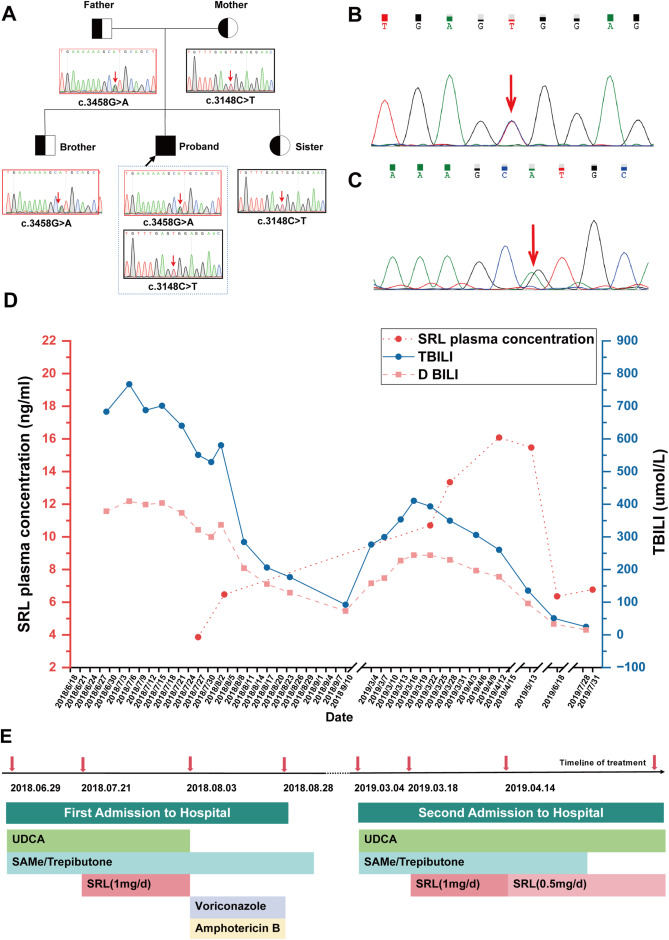
Sirolimus may improve bile excretion in ABCB11 mutants: A case report of a patient with bile salt export pump deficiency


Progressive familial intrahepatic cholestasis type 2 (PFIC2), also known as bile salt export pump (BSEP) deficiency disease, is a rare autosomal recessive inherited liver disease caused by mutations in the ABCB11 gene (located on chromosome 2q24-31), leading to impaired bile secretion.1 Over 200 distinct mutations in the ABCB11 gene have been identified, including missense, nonsense, insertion, deletion, and splice site mutations.1 Compared with other types of PFIC, patients with BSEP deficiency are at a higher risk of progressing to cirrhosis and liver failure. Current treatment options for PFIC2 remain limited and frustrating. Liver transplantation, the only effective intervention, remains the sole definitive treatment for PFIC2. Nevertheless, its application is severely limited by the prohibitive cost and the scarcity of suitable liver donors. Addressing the pathogenesis of PFIC2 poses a significant clinical challenge. However, a recent study has shown that sirolimus may partially restore the bile excretion ability of ABCB11 mutants in abcb11 knockout Zebrafish models.2 This case report describes a patient with BSEP deficiency disease who responded favorably to sirolimus treatment.
